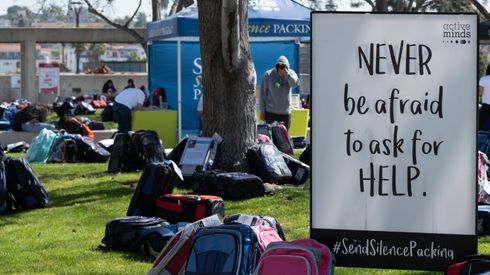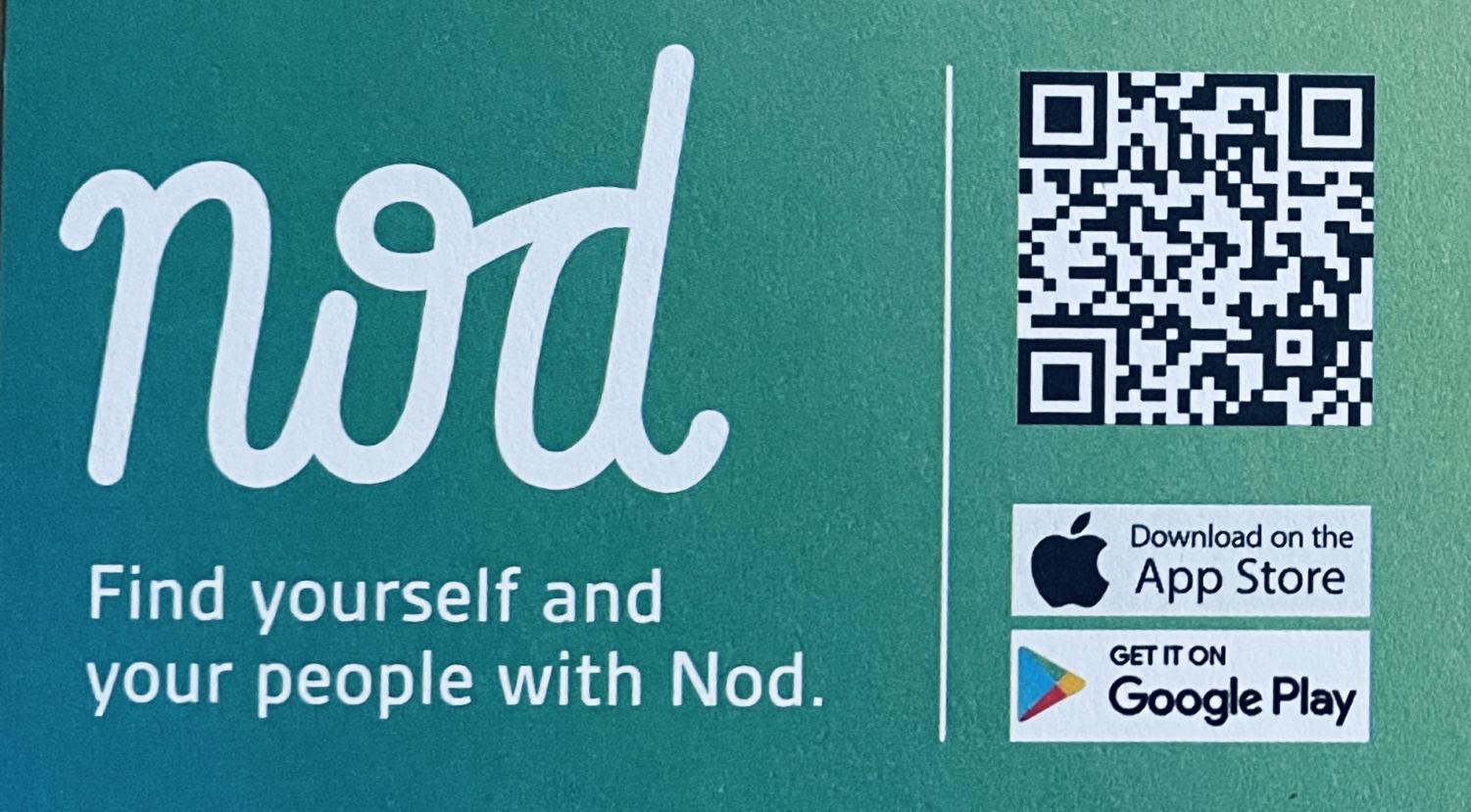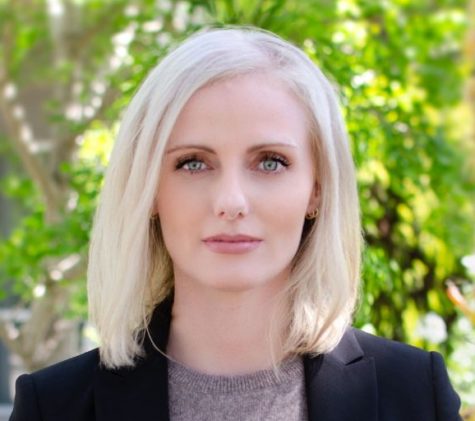City College shines light on importance of suicide prevention education
Campus-wide training highlights practical ways to provide support and resources to those struggling

City College students read personal stories about suicide at the 2020 Active Minds Send Silence Packing event. Each backpack represents the life of a student who has died. City Student Mental Health courtesy photo
September 20, 2022
According to the National Alliance on Mental Illness, suicide is the second leading cause of death in the United States for people between the age of 10 and 43.
During September, National Suicide Prevention Awareness Month, and all year long, San Diego City College Student Mental Health is working to lessen the stigma around suicide.
The City Student Mental Health department and Active Minds Chapter are sponsoring a campus-wide suicide prevention training on Sept. 20 in room MS-162. The training will be presented in Spanish from 1-2 p.m. and in English from 2-3 p.m.
The training is open to all students, faculty and staff. Staff can receive flex credit and all attendees will receive a certificate of completion and be eligible to win various prizes.
View this post on Instagram
The event, presented by San Diego Youth Services HERE Now and Anti-BIAS Program Manager Amy Chavez, will focus on the practical application of tools and resources to help prevent suicide.
Many people on college campuses are unsure of how to get help, with 55% of students surveyed by Active Minds in April of 2020 saying they would not know where to go if they or someone they knew needed professional mental health services right away.
At City, professional mental health services are free to all students and appointments are available; however, students often underutilize these services because of the stigma around seeking help, according to Student Mental Health counselor and Peer Educator Program advisor Abigail Weisman.
“We really believe that your physical and mental health are connected,” Weisman said. “We’re really excited to have this health center on campus where folks can walk in and be seen by both sides of the house, and it’s free and confidential.”
In a 2020 Active Minds Survey, 39% of students in college said they had experienced a significant mental health issue and 67% of young adults said they have told a friend they are struggling before telling anyone else.
If you are struggling or know someone who is, Weisman explained, talking about it can be the best first step toward better mental health.
“You don’t have to be a mental health professional or really have any formal training to help a person in need and talking about it is the best way to intervene,” Weisman said.
We shy away from it, which is totally normal and natural, but I think what that does is perpetuate the problem and the silence around it, and that’s really the most dangerous thing of all is to feel like you’re alone.”
There are many common misconceptions people have when it comes to addressing the topic of suicide, Mental Health counselor and Active Minds faculty advisor Nadia Sayeh explained. However, educating ourselves as a campus community is one of the best ways we can support ourselves and each other, she continued.
“I think information is key and knowledge is power,” Sayeh said. “I would like for our participants to get some understanding around suicide warning signs, to know that it’s okay to talk about suicide and that having suicidal thoughts is not uncommon.”
The transition to on-campus learning during the Fall semester has resulted in many City students reporting extra stress and anxiety, Mental Health Clinical Counselor Diana Hernandez said. However, to address personal mental health struggles or become an advocate for mental health awareness, there are several opportunities at City, Hernandez explained.
In addition to free mental and physical health care services, City students can join clubs like Active Minds, download the mental wellness app Nod to combat loneliness, attend workshops and weekly support groups and join the Peer educator program.
To stay informed about the latest Mental Health department news, resources and events sign up for The Mindful City newsletter, and follow @sdcitymentalhealth and @active_minds_sdcitycollege on Instagram.

To schedule an appointment with Student Mental Health click here or call (619) 388-3055.
To download the Nod app scan the QR code.
Suicide Lifeline: If you or someone you know may be struggling with suicidal thoughts, you can call the U.S. National Suicide Prevention Lifeline at 988 any time of day or night, text COURAGE to the Crisis Text Line at 741-741 or chat online.












